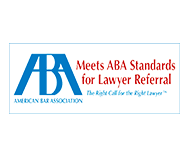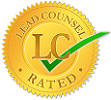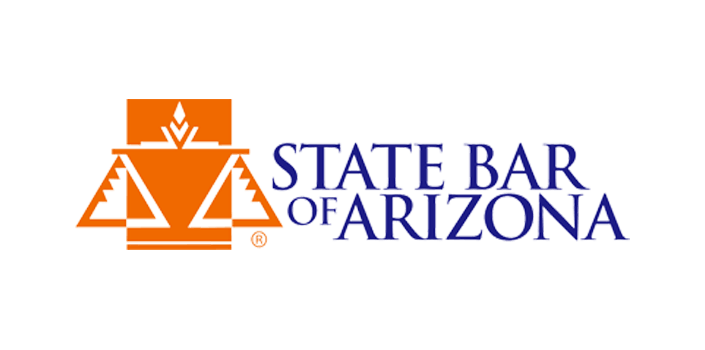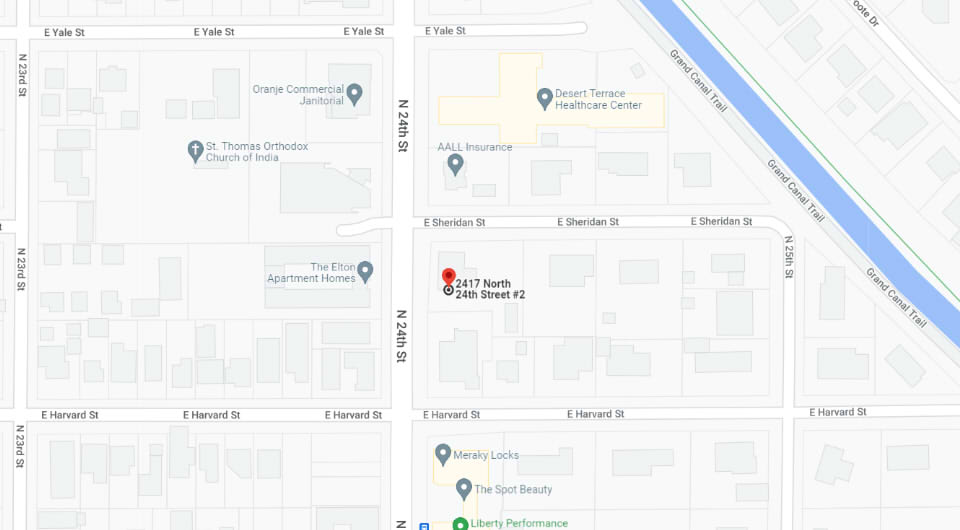Nursing homes are meant to be safe havens, providing compassionate care and support for our elderly loved ones. However, in some unfortunate cases, these facilities can become hotbeds of abuse and neglect, causing immeasurable harm to vulnerable residents. If you or a loved one have experienced nursing home abuse, it is essential to know that you have rights and options to pursue justice and seek compensation for the harm endured.
At Phoenix Personal Injury Attorney Law Firm, a trusted medical malpractice law firm based in Phoenix, Arizona, we understand the physical, emotional, and financial toll nursing home abuse can inflict on victims and their families. Our goal is to provide guidance and support to those who have suffered at the hands of negligent or abusive caregivers.
What is Nursing Home Abuse?
Nursing home abuse refers to any form of mistreatment or harm inflicted upon residents of long-term care facilities, such as nursing homes, assisted living centers, or skilled nursing facilities. It encompasses a range of actions or behaviors that compromise the well-being, dignity, and safety of elderly individuals entrusted to the care of these facilities.
Nursing home abuse can take various forms, including physical, emotional, sexual, and neglectful treatment. Each type of abuse poses significant risks to residents' physical and mental health, potentially causing severe injuries, emotional distress, and even death.
Below, we highlight the various forms of nursing home abuse:
- Physical abuse — Physical abuse involves intentionally using force against a resident, resulting in bodily harm or pain. Examples include hitting, pushing, kicking, restraining, or inappropriate use of medications or restraints.
- Emotional abuse — Emotional abuse refers to actions that inflict psychological pain, distress, or anguish upon residents. It can manifest through intimidation, humiliation, verbal threats or insults, isolation, or manipulating and controlling behavior.
- Sexual abuse — Sexual abuse involves any non-consensual sexual contact, advances, or actions directed toward a resident. It encompasses unwanted sexual touching, coerced nudity, rape, or any other form of sexual exploitation.
- Neglect — Neglect is the failure to provide adequate care and attention necessary for a resident's well-being. It can include withholding essential medical treatment, failure to provide proper nutrition and hydration, lack of personal hygiene assistance, and insufficient supervision, leading to accidents or injuries.
It is crucial to recognize that nursing home abuse is a grave violation of an individual's rights and can have severe physical, emotional, and psychological consequences. Victims of nursing home abuse have the right to seek justice, hold the responsible parties accountable, and pursue compensation for their suffering.
Recognizing the Signs of Nursing Home Abuse
Recognizing the signs of nursing home abuse is crucial for identifying potential mistreatment and taking appropriate action to protect the well-being of residents. While each case of abuse may present unique indicators, there are common signs that family members and loved ones should be aware of.
One of the most visible signs of nursing home abuse is the presence of unexplained injuries on the resident's body. These injuries may manifest as bruises, cuts, burns, or fractures.
Bedsores, also known as pressure ulcers, are another physical indicator that may suggest neglect or inadequate care. These painful sores develop due to prolonged immobility and can be a clear sign of mistreatment.
Pay attention to any restraining marks on the wrists or ankles of your loved one. These marks may indicate the improper use of restraints, leading to physical discomfort or harm.
Additionally, signs of malnutrition or dehydration should raise concerns. Look for weight loss, a dry mouth, sunken eyes, or other indicators of inadequate nutrition and hydration. Poor personal hygiene, such as unwashed hair, dirty clothes, or strong body odor, can also be a red flag.
Behavioral changes can be indicative of nursing home abuse. It may be a sign of mistreatment if your loved one exhibits unusual behavior, such as increased agitation, withdrawal, or fearfulness.
Watch for sudden onset of anxiety, depression, or emotional distress that cannot be explained by other factors. Pay attention to any fear or discomfort your loved one displays around specific staff members, as this may suggest a problematic relationship. Social isolation or withdrawal from activities and interactions can also be warning signs.
Environmental indicators can shed light on potential abuse. Inadequate staffing levels are a common issue in nursing homes, and it can lead to neglect or insufficient care for residents.
Look out for instances of understaffing or a lack of proper supervision, which can create opportunities for abuse to occur. Unsanitary living conditions should not be ignored, including dirty or soiled bedding, strong odors, or pest infestations. Safety hazards, such as slippery floors, faulty equipment, or improper medication storage, can also indicate a need for proper care and attention.
These signs do not definitively prove abuse, but they should raise concerns and prompt further investigation. If you observe any of these signs or have suspicions about the treatment of a loved one in a nursing home, it is crucial to take action promptly. By recognizing and addressing the signs of nursing home abuse, you can protect the well-being and dignity of your loved ones and ensure they receive the care and respect they deserve.
What Are the Steps to Take if Nursing Home Abuse is Suspected?
If nursing home abuse is suspected, it is crucial to take immediate action to ensure the safety and well-being of your loved one. Here are the steps to consider:
- Document your concerns — Take detailed notes about any suspicious incidents, injuries, or changes in your loved one's behavior or physical condition. Include dates, times, and descriptions of what you have observed. If possible, take photographs of any visible injuries or unsanitary conditions.
- Report the abuse — Contact the nursing home administration to report your concerns. Provide them with specific details and evidence you have gathered. Request a written report of your complaint and keep a copy for your records. Ensure that the administration takes your concerns seriously and initiates an investigation.
- Contact adult protective services — Contact your local Adult Protective Services agency or the Arizona Department of Health Services (ADHS). They have the authority to investigate allegations of abuse and ensure the safety of residents. Provide them with the information you have gathered and cooperate fully with their investigation.
- Seek medical attention — If your loved one has suffered physical injuries or is in immediate danger, seek medical attention promptly. Ensure that a healthcare professional evaluates and documents any injuries or health issues resulting from the suspected abuse. This documentation can serve as crucial evidence later on.
- Consult with an attorney — Contact a medical malpractice attorney who specializes in nursing home abuse cases. They can provide guidance and legal advice regarding your options for seeking justice and compensation. An attorney will help protect your loved one's rights, gather additional evidence, and navigate the legal process.
- Preserve evidence — Safeguard any physical evidence, such as photographs, medical records, or written reports. This evidence may be valuable in supporting your case should legal action be necessary. Keep a record of all communication with the nursing home, regulatory agencies, and any involved parties.
- Consider relocating your loved one — If the suspected abuse persists or the nursing home fails to address the issue adequately, you may need to explore alternative living arrangements for your loved one. Look for a safe and reputable facility that prioritizes resident well-being and provides quality care.
Remember, it is important to act swiftly and decisively if nursing home abuse is suspected. By taking these steps, you can help protect your loved one and hold those responsible accountable for their actions.
Settlement and Trial for Nursing Home Abuse
In nursing home abuse cases, two potential outcomes are settlement and trial. Settlement occurs when the parties involved, typically the victim and the nursing home or their insurance company, reach an agreement through negotiations facilitated by their attorneys.
This agreement usually involves the victim receiving a specific amount of compensation in exchange for releasing the nursing home from further liability. Settlements can occur at various stages of the legal process and provide advantages such as quicker resolution and the ability to obtain compensation sooner. However, having a medical malpractice attorney representing your interests during settlement negotiations is vital to ensure fair and appropriate compensation.
Alternatively, if a settlement cannot be reached or the parties cannot agree on satisfactory terms, the case may proceed to trial. Trials involve presenting evidence, calling witnesses to testify, and making legal arguments before a judge or jury.
Both sides present their case, cross-examine witnesses, and provide evidence to support their positions. Ultimately, the judge or jury will render a verdict, determining whether the nursing home is liable for the abuse and, if so, the compensation the victim should receive. Trials can be lengthy and involve various legal procedures, but they offer an opportunity for victims to seek justice and hold the responsible parties accountable.
In either situation, having the guidance and representation of a skilled medical malpractice attorney specializing in nursing home abuse cases is crucial. They will assess your case, advise on the best course of action, and advocate for your rights throughout the legal process, whether through negotiations for a settlement or presenting a solid court case.
What is the Statute of Limitations in Arizona for Nursing Home Abuse?
In Arizona, the Statute of Limitations for medical malpractice claims, including those related to nursing home abuse, is generally two years from the date of the alleged malpractice or from the date the injury was discovered or should have been discovered through reasonable diligence. This means a lawsuit must typically be filed within two years from one of these dates.
However, medical malpractice laws and statutes of limitations can be complex and subject to various exceptions and circumstances. In certain situations, the statute of limitations may be extended or modified.
For example, the timeframe may be extended if the victim is mentally incapacitated or a minor. Additionally, there may be different rules regarding claims against government-run nursing homes or facilities.
Available Compensation for Victims of Nursing Home Abuse
Victims of nursing home abuse may be eligible for various forms of compensation depending on the specific circumstances of their case. While the types and amounts of compensation can vary, here are some potential avenues for seeking compensation:
- Medical expenses — Victims may be entitled to compensation for medical expenses related to injuries caused by the abuse. This can include costs for hospitalization, surgeries, medications, rehabilitation, therapy, and ongoing medical care.
- Pain and suffering — Victims may be able to seek compensation for the physical pain, emotional distress, and psychological suffering they endured due to the abuse. This can encompass both the immediate impact of the abuse and any long-term consequences on their quality of life.
- Mental anguish and emotional distress — Nursing home abuse can significantly impact a victim's mental and emotional well-being. Compensation may be available for the psychological trauma, anxiety, depression, and other emotional distress experienced by the victim.
- Loss of enjoyment of life — If the abuse has resulted in a diminished ability to enjoy life's activities or has caused permanent disability or disfigurement, victims may seek compensation for the loss of enjoyment of life they have experienced.
- Punitive damages — In some cases involving particularly egregious or willful misconduct, victims may be eligible for punitive damages. These damages are intended to punish the responsible party and deter similar behavior in the future.
- Wrongful death — If nursing home abuse leads to the death of a resident, their surviving family members may pursue a wrongful death claim. Compensation may be available for funeral and burial expenses, financial support and companionship loss, and other related damages.
It is important to consult with a qualified medical malpractice attorney who specializes in nursing home abuse cases to understand the specific compensation options available to you based on your circumstances. They can evaluate your case, gather evidence, and advocate on your behalf to seek the maximum compensation you may be entitled to. Note that the availability and extent of compensation can vary depending on factors such as the severity of the abuse, the liability of the parties involved, and other individual case details.
How a Medical Malpractice Attorney Can Help You
A medical malpractice attorney can provide invaluable assistance if you or your loved one has been a victim of nursing home abuse. Here are several ways in which a medical malpractice attorney can help:
- Case evaluation — A medical malpractice attorney will review the details of your case, including medical records, evidence of abuse, and relevant documentation. They will assess the strength of your case, identify potential legal claims, and determine the best course of action.
- Legal expertise — Medical malpractice laws can be complex. A knowledgeable attorney specializing in nursing home abuse cases understands the legal intricacies and can navigate the legal process on your behalf. They will ensure your rights are protected, and all legal procedures are correctly followed.
- Gathering evidence — Attorneys have the experience and resources to collect and analyze evidence crucial to your case. They can obtain medical records, surveillance footage, witness statements, and expert opinions to build a strong case and establish liability.
- Expert witnesses — In nursing home abuse cases, expert witnesses may be necessary to provide professional opinions and testimony. Medical malpractice attorneys have access to a network of qualified experts who can provide insights into standards of care, the severity of injuries, and the long-term consequences of abuse.
- Negotiations and settlements — A skilled attorney will negotiate with insurance companies and opposing parties on your behalf. They will strive for a fair settlement that compensates you for your losses, including medical expenses, pain and suffering, and other damages. They will be prepared to advocate for you in court if a settlement cannot be reached.
- Court representation — If your case proceeds to litigation, a medical malpractice attorney will represent you in court. They will present your case, question witnesses, and argue on your behalf. They will use their expertise in medical malpractice law to build a persuasive case and fight for the compensation you deserve.
- Support and guidance — Dealing with the aftermath of nursing home abuse can be emotionally challenging. A compassionate medical malpractice attorney will provide support, guidance, and reassurance throughout the legal process. They will be there to answer your questions, address your concerns, and advocate for your best interests.
By working with a medical malpractice attorney, you can level the playing field and ensure your rights are protected. This will increase your chances of obtaining fair compensation for the harm you or your loved one has suffered due to nursing home abuse.
Find a Phoenix Medical Malpractice Attorney Near Me
Consulting with a medical malpractice attorney specializing in nursing home abuse cases is vital in pursuing compensation. They have the expertise to evaluate your case, gather evidence, and guide you through the legal process. Whether through negotiations for a settlement or representing you in court, an attorney will fight for your rights and work towards obtaining the compensation you deserve.
At Phoenix Personal Injury Attorney Law Firm, we understand the challenges faced by victims of nursing home abuse and are dedicated to advocating for their rights. Contact us today to schedule a consultation and take the first step toward seeking the compensation and justice you deserve. You don't have to face this journey alone. Call us at 602-641-9589.










